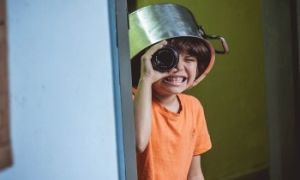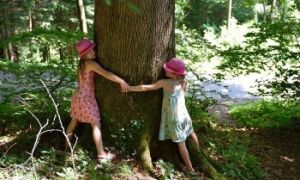

Neurodivergence refers to natural variations in how brains process information, emotions, and social interactions. In early childhood, this may include children with autism, ADHD, dyslexia, dyspraxia, or other neurological differences.
In early childhood education, behaviour is never just “bad” it’s a message. Whether it’s a child struggling with transitions, sensory overload, or unmet emotional needs, the role of educators is to respond with curiosity, compassion, and consistency. But educators can’t do it alone. Behavioural support must be systemic, accessible, and grounded in both child development and educator well-being. Across Australia, a range of behavioural support pathways exist to help services respond to challenging behaviours while upholding inclusion, safety, and dignity for all.
Early childhood educators are entrusted with the profound responsibility of nurturing and protecting young children. Yet, many educators face daily challenges when children exhibit violent behaviours like biting, hitting, scratching, or verbal aggression. While child protection is paramount, the rights and well-being of educators must also be safeguarded.
Attention Deficit Hyperactivity Disorder (ADHD) is a neurodevelopmental condition that affects a child’s ability to regulate attention, impulses, and activity levels. In early childhood settings, ADHD may present as difficulty sitting still, following instructions, transitioning between tasks, or managing emotions. With the following key strategies, educators can create environments that support learning, emotional regulation, and social development.
This foundation course is a 2-part series, provided by Early Childhood Australia, that develops an understanding of the meaning of children’s behavior, which will in turn support educators in developing strategies and teaching techniques unique for each individual child, with the overall aim of empowering children to take control.
Tantrums can be intense, unpredictable, and emotionally draining for both children and adults. But beneath the noise and tears lies something deeper: a child overwhelmed by emotion, struggling to communicate what they feel. In early childhood education and care, how we respond to these moments shapes not just behavior but also emotional literacy, trust, and long-term well-being.
In the rhythm of early childhood, emotional storms are natural. Toddlers and preschoolers are still learning to navigate big feelings, and their expressions, whether tears, tantrums, or withdrawal, are often calls for connection, not correction. As educators, our role is to be the calm in their chaos, offering warmth, understanding, and safe spaces to feel. The following article explores emotionally intelligent strategies that educators can implement to support children during moments of overwhelm, with examples.
When a child becomes violent in an early childhood setting, de-escalation isn’t just about calming the moment—it’s about protecting safety, preserving dignity, and responding to distress with relational intelligence. Here’s a trauma-informed, regulation-aligned guide to de-escalation strategies for violent behaviour in young children.
Violence from a child in an early childhood setting can be confronting, destabilising, and emotionally exhausting. For educators committed to nurturing safe, responsive environments, such incidents often trigger a complex mix of concern, confusion, and self-doubt. This article explores how educators can protect themselves, support the child, and uphold their duty of care.
Teaching young children how to use their hands for kindness rather than harm is foundational to building a caring classroom culture. At ages four and five, children are still developing self-regulation and may act out physically when emotions feel overwhelming. As educators, we can guide them toward prosocial alternatives, equip them with emotional vocabulary, and partner with families to reinforce healthy touch at home.
 Toddlers have a greater understanding of the world around them by this stage. Their cognitive development (also known as intellectual development and thinking skills) continues… Read More
Toddlers have a greater understanding of the world around them by this stage. Their cognitive development (also known as intellectual development and thinking skills) continues… Read More
 Infants begin to develop trust when parents begin to fulfil their needs. Such as changing an infant's nappy when needed, feeding on request and holding… Read More
Infants begin to develop trust when parents begin to fulfil their needs. Such as changing an infant's nappy when needed, feeding on request and holding… Read More
 Beginning at birth the construction of thought processes, such as memory, problem solving, exploration of objects etc, is an important part of an infant’s cognitive… Read More
Beginning at birth the construction of thought processes, such as memory, problem solving, exploration of objects etc, is an important part of an infant’s cognitive… Read More
 Toddlers want to do more on their own and do not like it when you begin to establish limits on their behaviour. Tantrums can become… Read More
Toddlers want to do more on their own and do not like it when you begin to establish limits on their behaviour. Tantrums can become… Read More
 Your preschooler is now able to focus their attention more accurately and is less influenced by distractions. The intensity of questions increase as your child… Read More
Your preschooler is now able to focus their attention more accurately and is less influenced by distractions. The intensity of questions increase as your child… Read More
 John Dewey is often seen as the proponent of learning by doing – rather than learning by passively receiving. He believed that each child was active,… Read More
John Dewey is often seen as the proponent of learning by doing – rather than learning by passively receiving. He believed that each child was active,… Read More
 Toddler advance and gains new skills in Gross Motor Development milestones achieved throughout earlier years. Co-ordination and challenges that could not be performed before such… Read More
Toddler advance and gains new skills in Gross Motor Development milestones achieved throughout earlier years. Co-ordination and challenges that could not be performed before such… Read More
 Erik Erikson developed a psychosocial theory to understand how we each develop our identities through eight stages of psychosocial development from infancy to adulthood. The… Read More
Erik Erikson developed a psychosocial theory to understand how we each develop our identities through eight stages of psychosocial development from infancy to adulthood. The… Read More
 At this point preschoolers begin to interact effectively with others. Play becomes more innovative and organized and “boyfriend” or “girlfriend” begins to emerge. Preschoolers have… Read More
At this point preschoolers begin to interact effectively with others. Play becomes more innovative and organized and “boyfriend” or “girlfriend” begins to emerge. Preschoolers have… Read More
 From now, babies begin to identify and respond to their own feelings, understanding other's feelings & needs and interact positively with others. A baby's social and… Read More
From now, babies begin to identify and respond to their own feelings, understanding other's feelings & needs and interact positively with others. A baby's social and… Read More

There are 6 different types of play that children participate in over the course of...
See more...
Phonological awareness covers the child’s ability to recognize and use the spoken parts of sentences...
See more...
To be familiar with nature, to spend some time amid nature, talking, thinking about trees...
See more...© 2009-2025 Aussie Childcare Network Pty Ltd. All Rights Reserved.

